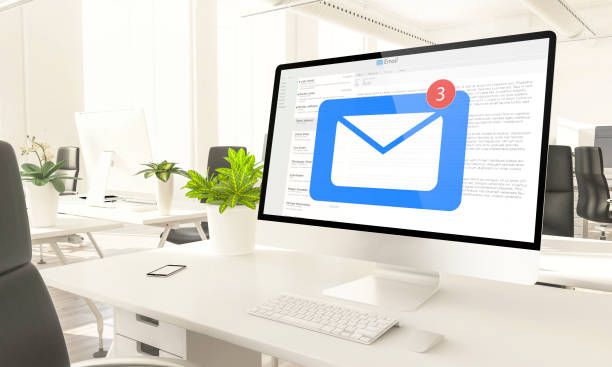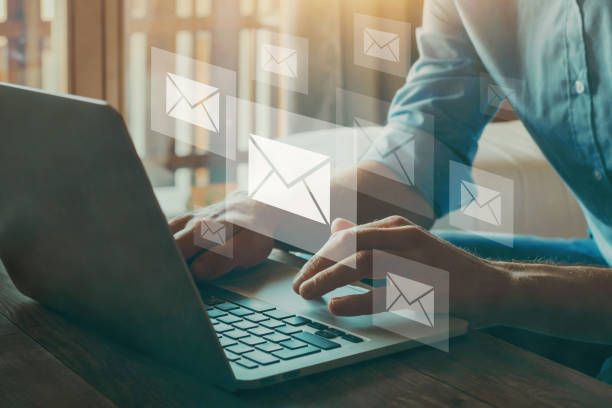In today's digital age, email has become an indispensable communication tool for individuals and businesses alike. Whether it's for personal or professional purposes, we rely heavily on email to connect, share information, and conduct various transactions. However, with the increasing prevalence of cyber threats and the constant evolution of email technology, it's crucial to prioritize the regular check-up of our email accounts. In this comprehensive article, we will explore the importance of email check-up, its benefits, and provide expert insights on how to ensure effective communication and bolster security.
Email Check-Up: A Necessity for Effective Communication

Maintaining effective communication is vital in both personal and professional contexts. Emails serve as a primary mode of communication, facilitating seamless information exchange and collaboration. However, various factors can hinder the efficiency and reliability of email communication. From technical issues, such as bounced emails and delivery errors, to outdated contact information and overflowing inboxes, these challenges can result in missed opportunities, miscommunication, and frustration.
By conducting regular email check-ups, you can proactively address these issues and ensure smooth communication. Here are some key aspects to focus on during an email check-up:
- Email Deliverability: Ensuring that your emails are reaching their intended recipients is crucial. By using reputable email service providers, regularly monitoring delivery rates, and implementing proper email authentication measures like SPF (Sender Policy Framework) and DKIM (DomainKeys Identified Mail), you can enhance email deliverability and reduce the chances of your messages being flagged as spam.
- Contact List Management: Over time, contact lists can become outdated or cluttered with irrelevant or inactive email addresses. By periodically reviewing and updating your contact list, you can maintain accurate recipient information, reduce the risk of sending sensitive data to the wrong individuals, and optimize your email campaigns.
- Inbox Organization: An overflowing inbox can be overwhelming and lead to missed emails or delays in response. Implementing effective email management strategies, such as creating folders, using filters and labels, and archiving or deleting unnecessary messages, can help keep your inbox organized and ensure that important emails receive the attention they deserve.
- Email Signatures: Reviewing and updating your email signature is often overlooked but can significantly impact your professional image. Ensure that your signature contains up-to-date contact information, including your name, title, company, phone number, and website, to provide recipients with a comprehensive overview of who you are and how to reach you.

Enhancing Email Security: Protecting Your Digital Assets

As email communication involves the exchange of sensitive information, such as personal details, financial data, and confidential business documents, it's imperative to prioritize email security. Regular email check-ups allow you to fortify your defenses against potential cyber threats. Here are some essential aspects to consider:
- Password Strength and Multi-Factor Authentication (MFA): Strengthening your email account's security begins with a robust password. Ensure that your password is unique, complex, and regularly updated. Additionally, enable multi-factor authentication (MFA) to provide an additional layer of protection by requiring a verification code or biometric authentication in addition to your password.
- Email Encryption: Encrypting your emails ensures that the contents are only accessible to the intended recipients. By utilizing email encryption tools or email clients that support encryption, you can safeguard your sensitive information from unauthorized access.
- Phishing Awareness: Phishing attacks continue to be a prevalent threat in the digital landscape. Regular email check-ups provide an opportunity to educate yourself and your team about the latest phishing techniques and how to identify suspicious emails. Implementing robust spam filters and training employees on best practices for email security can significantly reduce the risk of falling victim to phishing attempts.
- Software Updates: Keeping your email client and security software up to date is crucial. Software updates often include patches for vulnerabilities and security enhancements, helping to protect against potential exploits.
Frequently Asked Questions (FAQs)
Q1: How often should I perform an email check-up?
A1: It is recommended to perform an email check-up at least once every three months. However, the frequency may vary depending on the volume of emails you send and receive, the importance of the information exchanged, and the sensitivity of the data involved.
Q2: What should I do if I suspect my email account has been compromised?
A2: If you suspect your email account has been compromised, take immediate action. Change your password, enable multi-factor authentication (MFA), scan your device for malware, and contact your email service provider for further assistance.
Q3: Are there any tools available to automate email check-ups?
A3: Yes, there are various email management tools and services available that can automate certain aspects of email check-ups. These tools can help monitor email deliverability, manage contact lists, and enhance overall email security.
Q4: Can I perform an email check-up on my mobile device?
A4: Absolutely! Most email service providers offer mobile apps with features for managing email settings, contacts, and security. You can perform essential email check-up tasks conveniently from your mobile device.
Conclusion
Regular email check-ups are essential for maintaining effective communication and enhancing security in today's digital landscape. By focusing on aspects such as email deliverability, contact list management, inbox organization, and email security measures, you can optimize your email communication and protect your digital assets from potential threats. Remember, prioritizing email check-ups is not only about streamlining communication but also about safeguarding sensitive information and maintaining a professional image. Embrace the proactive approach of email check-ups, and ensure that your email accounts remain reliable, secure, and efficient.

